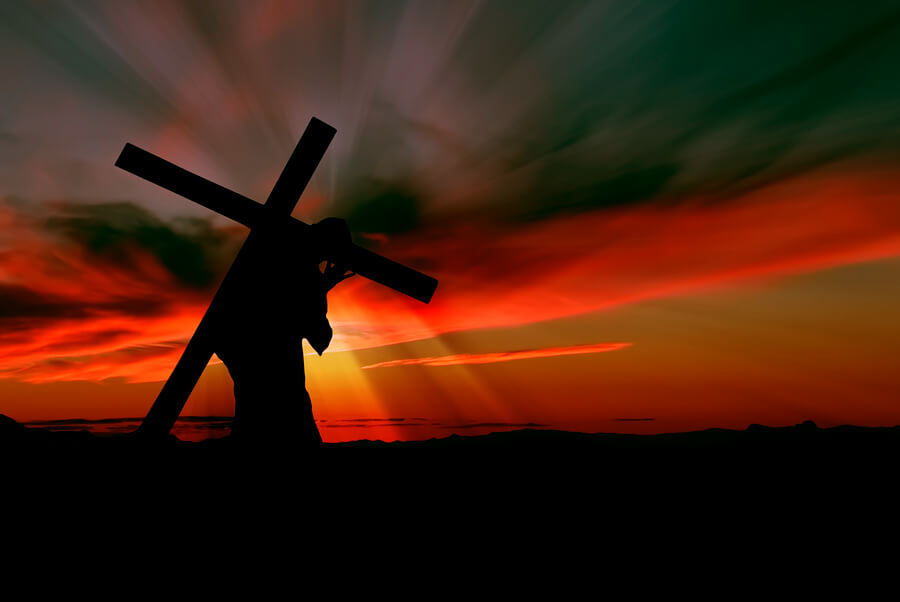“Now before the Feast of the Passover, when Jesus knew that his hour had come to depart out of this world to the Father, having loved his own who were in the world, he loved them to the end.” – John 13:1
“Everybody don’t have somebody” was the title a writer for the St. Louis Post Dispatch gave to an article he wrote telling of his experiencing serious and potentially fatal health issues when traveling away from his home. Fortunately, he did have a wife and daughter along who cared for him and dealt with a myriad of complexities with two unfamiliar hospitals and their staffs. The point of his article was he, unlike perhaps many others, did have somebody to care for him in a strange place when he desperately needed help, being suddenly weak and ill. Not everybody, he wrote, has a “somebody” to aid them when desperate and alone. Maybe they once did, but perhaps now, not; they have become alone in their world. How many experience this at anytime in their life? How many find themselves alone at death? How many will be in this situation beyond the grave? All alone, with no one to walk beside through the valley of the shadow of death. And even if there are family or friends, they cannot go through this valley with them. No one to truly love “to the end,” meaning, to love “to the uttermost.”
This is Holy Week; today, Thursday, is the remembrance of the Passover Meal when Jesus introduced the Last Supper to his disciples, a meal to be thereafter celebrated often by his faithful followers until the day he returns. Tomorrow is Good Friday when the true Passover Lamb was sacrificed for the sins of his own people on the cross on Mt. Calvary. The night before as Jesus and his disciples prepared to eat the feast of Passover, Jesus expressed his great and intense love for them, and represented by these dozen disciples, expressed his love for all his own people of every century. He knelt on the floor before them to personally wash their dirty feet. He expressed his love for them as a love “to the end, to the uttermost,” a love which would never fade at anytime, in any way. This is, perhaps, just a phrase in a verse which can easily escape one’s notice, but the Apostle John knew exactly what he was writing when by the Holy Spirit he conveyed the precise words and meaning of Jesus’ own lips.
In the later remarkable vision which John palpably experienced, when he was the last of the apostles alive, exiled in old age to a small island in the Mediterranean Sea named Patmos, John viewed the Savior he loved, and whom he knew beyond all doubt loved him. In metaphoric and apocalyptic adjectives Jesus is poetically and “other-worldly” depicted in Revelation Chapter 1, and later described as a Lamb that was slain in the center of the courts of heaven, and then as a rider on a white horse with flaming eyes, head crowned with many diadems, wearing a robe dipped in blood, and coming out of his mouth a sharp sword. In all of this mysterious, prophetic vision John remembers quite well the One who once walked beside him for three years in Palestine, who expressed a deep love for him in no uncertain terms, and vowed: “He loved his own who were in the world, and loved them to the uttermost!” This is the same Redeemer whose eyes and heart John saw in and behind all the various visions of the great eternal and universal King of Creation. John still saw and heard through it all the familiar and intimate companion who was his Savior.
“Everybody don’t have somebody,” at least somebody who loves and can love them to the end. The love of many will grow cold, the commitment of many more will fail, the strength of all will become utterly weak, but only One will love to the uttermost; to the full pardon of all your sin, to overcoming the power of death which can hold you in its deadly grip, to performing the miracle of transforming your perishable body into an imperishable one, to removing the certainty of a second and final death, and to being your mediator forever; this is the capability of but One.
The message you should consider in your memory of his persecution and crucifixion tomorrow, and in your acknowledgement of the empty tomb on Sunday, is his loving you to the uttermost. Good Friday and Easter are personal statements of his love. Do not celebrate these days and their events as just going through the motions of what you do, because you always do it, with many responsibilities of being with family, friends, church, Easter baskets, meals, etc. Celebrate them as personal and real; as an expression of authentic love for you which you cannot and will not ignore. Good Friday and Easter speak an intense and intimate love into your heart, confessed by your Savior as love for you to the uttermost! Meditate on that.
“O love that will not let me go, I rest my weary soul in thee; I give thee back the life I owe, that in thy ocean depths its flow may richer, fuller be.”
(1st verse of George Matheson’s hymn, “O Love That Will Not Let Me Go,” 1882)
Stay Updated
Sign up for our monthly newsletter and weekly devotional










